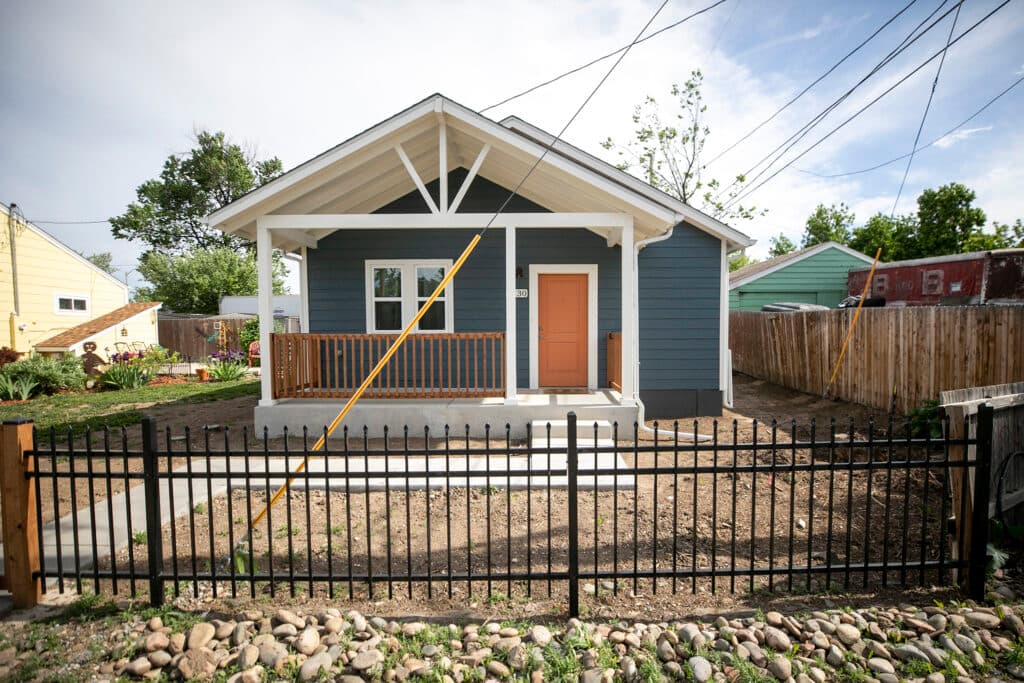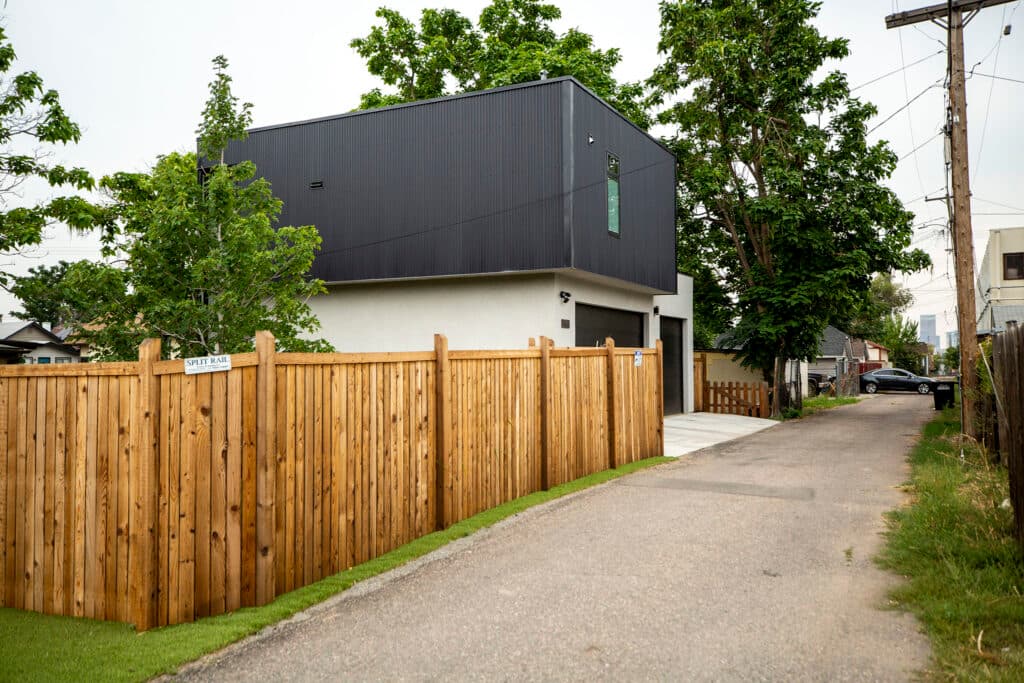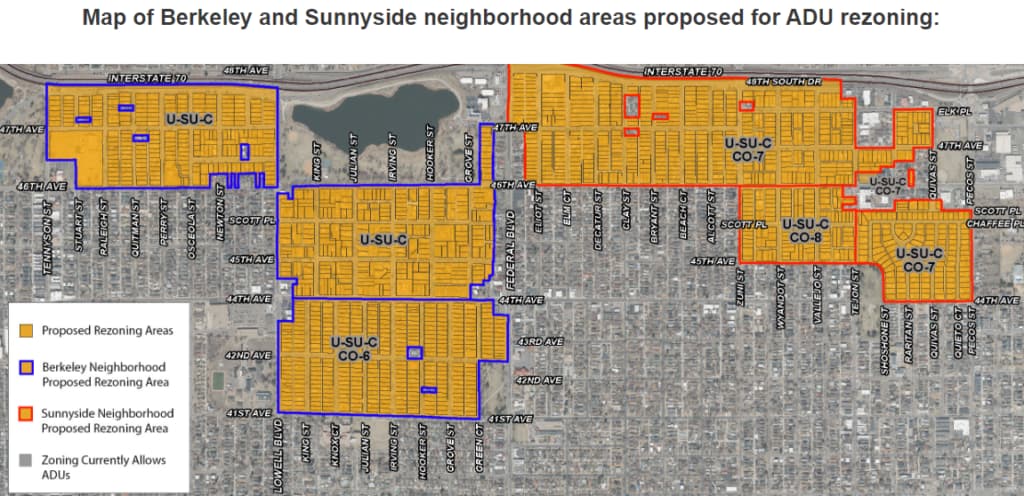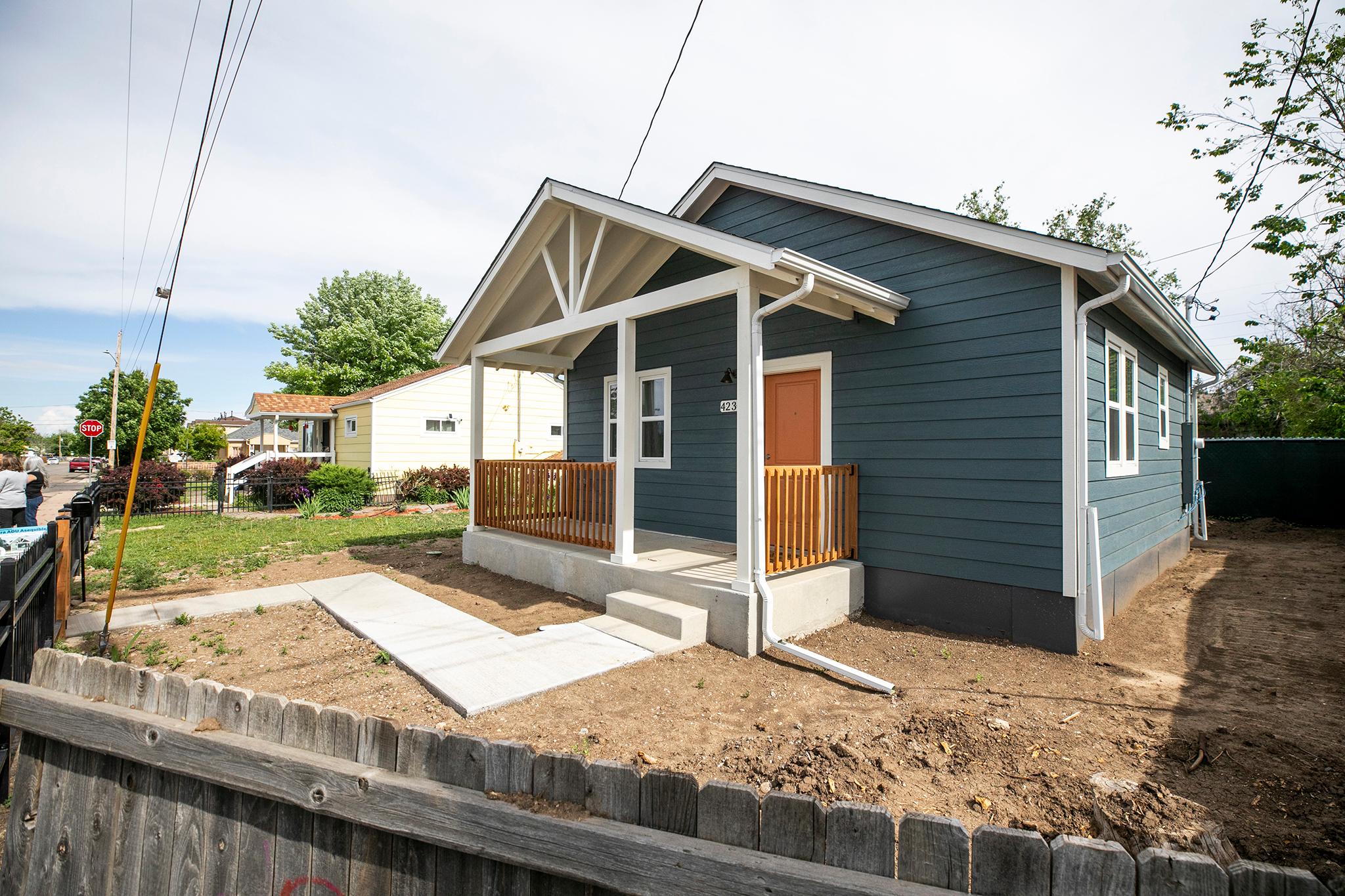When City Council approved a blanket rezoning of the Hale neighborhood in early April to allow for accessory dwelling units, or ADUs, some residents voiced concerns.
Those who opposed the neighborhood rezoning cited the possibility of too much density in the area and a proliferation of short-term rental units. Some residents said ADUs would destroy the neighborhood's character.
However, rental units and density are the city's driving factor in touting ADUs as a housing solution tool. The city believes ADUs are a way to increase housing stock and add some affordable units to the market.
But with these rezonings, are ADUs actually popping up like weeds? Are they taking over the short-term rental market? It’s data-time.
Rezoning doesn't remove the need for construction permits, nor does it allow for an ADU to be built on a property that doesn’t fit the design guidelines.
Homeowners across Denver can apply to rezone their lot, making way for ADU construction. However, the application process can take months and costs about $1,000.

Neighborhood rezoning removes that step, making the construction process easy. A win in Denver's eyes.
Since 2018, the city has approved 143 rezoning requests and denied one. Those requests have increased over the years, going from three in 2018 to a high of 37 in 2021. In 2022 and 2023, those numbers decreased to 34 and 21 respectively. Out of those 143 rezonings, eight legislative rezonings -- the neighborhood rezonings.
So far this year, 14 rezoning requests have been approved.
Also in that time, about 389 construction permits have been issued for ADUs and 278 were completed, meaning a final inspection was done.
What about rentals?
There are about 3,001 short-term rental licenses in Denver, according to the Department of Excise and Licenses. That includes active licenses and those in a delinquent grace period. Residents are allowed to operate short-term rentals up to 90 days after their license expires, but they are considered delinquent.

Of the total number of licenses, about 417 ADUs are being used as short-term rentals. So, about 14% of short-term rentals in the city are in ADUs.
A short-term rental is a residential space with a lease term of less than a month, according to Community Planning and Development. Anything longer is considered a “traditional rental” per the zoning code.
There are about 20,366 active residential rental licenses. Denver began tracking rental properties in Jan. 2023. The program was designed to give the city a better sense of how many rental units exist and a registry to oversee rental conditions.
Out of those licenses, 88 are ADUs and 18 applications are pending. Combined, that’s about .5%.
It’s unclear how many ADUs are in the city. That's because some historical homes already have existing carriage homes and basements can be converted into ADUs.
The city is hoping that erasing steps in the ADU construction process, like rezonings, will lead to more ADUs.
About 35% of Denver is zoned to allow for ADUs mostly on the north and west side.
Neighborhood rezonings, changes to the design guidelines and possibly just rezoning all of Denver are all steps the city is taking to align with Blueprint Denver, the city’s 20-year plan on how things should look and feel. The plan believes ADUs can increase growth and reduce displacement.

The units also provide additional space for families looking to house relatives or homeowners can rent out the space for additional income both long and short term.
But rezonings don’t eliminate the actual cost of an ADU, which is about $350,000. Also, some properties, regardless of the recent design changes, still don’t qualify for an ADU.
But the rezonings are continuing nonetheless.
On Tuesday, the Land Use council committee approved the proposed rezoning of about 1,700 parcels across the Berkeley, Sunnyside and Sloan's Lake neighborhoods.
Berkeley and Sunnyside will be the fifth and sixth neighborhoods Councilmember Amanda Sandoval has rezoned for ADUs in her district. Sloans’ Lake was rezoned in 2021 but one property was left out, according to Sandoval. So, that property was added to blanket rezoning.

The proposal will go before the full city council in June with a required public hearing.
If you’re interested in weighing on whether city officials should rezone all of the city, you can do so here.












